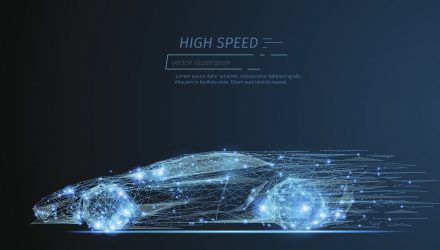By William Studebaker, President and CIO, ROBO Global
It comes as no surprise that the race for AI determines tomorrow’s superpowers. The Trump Administration put the brakes on a takeover bid of Qualcomm by Singapore-based Broadcom on the grounds of national security. The decision is about much more than trying to win the race toward dominance in artificial intelligence.
Qualcomm
While AI is certainly an area that is poised to impact every area of the supply chain for nearly every industry around the globe, what Qualcomm has to offer is much bigger—and the potential to take it out of the hands of the US could change the course of history.
As the leading American chipmaker, one of Qualcomm’s most highly touted projects is its all-important 5G network—an ultrafast mobile network that touches every aspect of tomorrow’s robotics, automation, and AI-driven world. 5G is the tool that will be used to connect everything to the internet. And not just computers and mobile phones.
Nearly two decades ago, sociologist Neil Gross was spot on when he made a prediction that, at the time, seemed more rooted in science fiction than the real world: “In the next century, planet earth will don an electronic skin. It will use the Internet as a scaffold to support and transmit its sensations.” Perhaps even he didn’t grasp how far this evolution would transpire—and how fast.
Seemingly overnight, technology and AI has become part of our every day lives.
AI Becoming a Foundation to Our Lives
We use smartphones not just to communicate, but to remotely monitor and manage home appliances, navigate the fastest route to work, and then locate a parking space once we’ve arrived.
We use apps and smart watches to track our exercise, monitor our health, and remember to take critical medications.
Cities use the internet to control streetlights, monitor utility consumption, and test the integrity of bridges and other foundational structures.
Industry uses robots to drive productivity and reduce costs (think Amazon and its use of Kiva robots); internet-enabled apps and sensors to support smarter farming using agricultural robots to test and manage moisture and nutrient levels in soil; and medical robots to create better patient outcomes through robot-assisted surgeries, wearable health monitors, and other major healthcare innovations.
Driverless cars have finally become a reality—an advancement that promises to dramatically reduce the cost of transportation as we know it.
Big Data
Each of these innovations relies on one thing: fast, reliable Big Data. We’re in the early stages of a new world order, and every aspect of it depends on access to the mobile network that will manage the nearly unimaginable explosion of Big Data that is charging toward us at full speed.
The race is on, and China was the first to publicly throw down the gauntlet. Three years ago, China’s central government announced its ‘Made in China 2025’ initiative aimed at remaking its industrial sector into a global leader in high-technology products and advanced manufacturing techniques.
